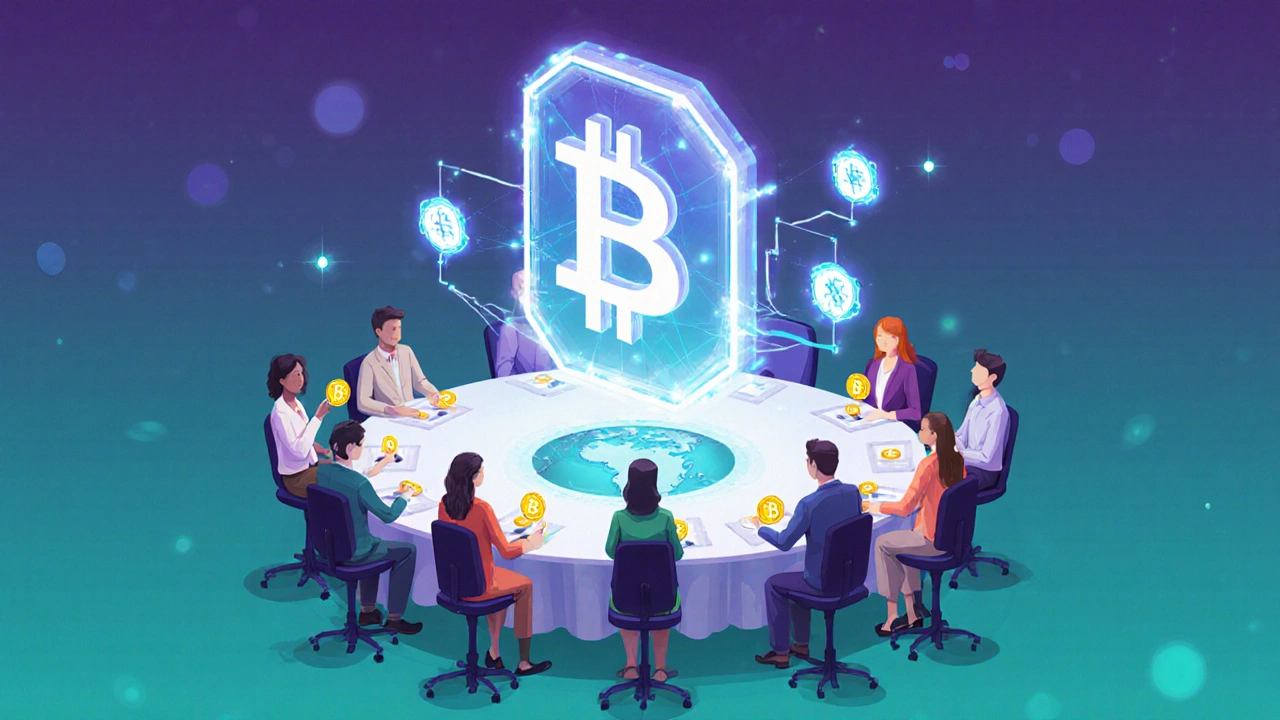Decentralized Autonomous Organization (DAO) – Everything You Need to Know
When working with Decentralized Autonomous Organization, a member‑run organization that operates on blockchain code without a central authority. Also known as DAO, it lets anyone join, vote, and execute decisions transparently. If you’re curious about the decentralized autonomous organization model, keep reading.
A DAO lives on a Blockchain, a distributed ledger that records transactions in an immutable way. Also known as distributed ledger technology, it provides the security and trust that make a DAO possible. In practice, the blockchain stores the smart‑contract code, the voting records, and the flow of assets, so no single party can tamper with the outcome.
The decision‑making power inside most DAOs comes from Governance Tokens, cryptocurrency assets that let holders vote on protocol changes. Also known as voting tokens, they turn economic stake into political influence. When a token holder proposes a change, the community votes, and the result is executed automatically if it meets the preset quorum.
All of this runs on Smart Contracts, self‑executing code that enforces agreement terms automatically. Also known as code contracts, they replace lawyers, escrow agents, and boardrooms. A smart contract defines who can propose, who can vote, and what thresholds trigger a fund release or a protocol upgrade, ensuring the DAO behaves exactly as its rules dictate.
Because DAOs are built on blockchain, they intersect with broader DeFi trends. For example, the Bitcoin block reward mechanism shows how built‑in incentives can align participant behavior; similarly, many DAOs use token rewards to encourage contribution and liquidity provision. Governance tokens like those used in DeFi protocols often double as DAO membership keys, blurring the line between finance and organization. This synergy creates new business models where communities fund projects, vote on roadmaps, and share the upside without a traditional corporate structure.
Understanding these pieces—blockchain, governance tokens, smart contracts—gives you a clear picture of why DAOs are reshaping everything from finance to social clubs. Below you’ll find articles that break down the economics, explore real‑world examples, and offer step‑by‑step guides to start or join a DAO yourself. Dive in and discover how this architecture can empower you to collaborate, invest, and innovate on your own terms.

What Is a DAO in Crypto? A Simple Guide
- by Zephyr Blackwood
- on 25 Sep 2025
A clear, beginner-friendly guide that explains what a DAO is in crypto, how it works, its benefits, risks, real examples, and steps to join or create one.
